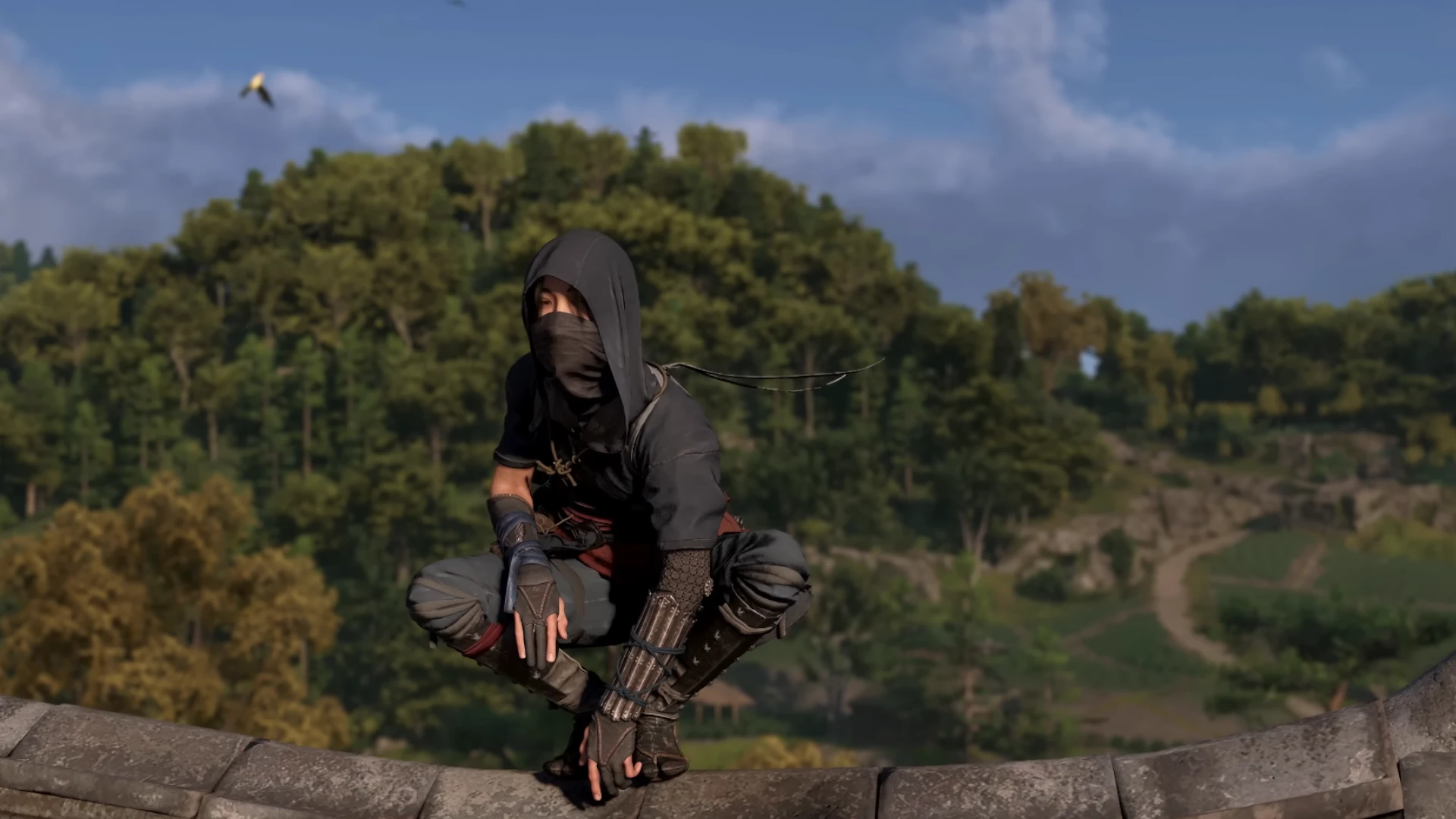Since its 2007 debut, Assassin’s Creed has become one of the most iconic franchises in gaming—famous for its blend of historical fiction, open-world exploration, and stealth-driven action. Over the years, Ubisoft has evolved the formula, taking players from ancient Egypt to Renaissance Italy, from pirate-infested Caribbean seas to the mythic battlefields of Greece. And now, with Assassin’s Creed Shadows, the series finally ventures into feudal Japan—one of the most requested settings in franchise history.
With its rich historical environments, evolving gameplay mechanics, and memorable characters, ranking the best Assassin’s Creed games is no easy task. But with a combination of fan acclaim, innovation, and staying power, these ten titles rise above the rest.
1. Assassin’s Creed Shadows (2025)

Platform: PS5, Xbox Series X|S, PC
Why It’s #1: The long-awaited Japan setting finally arrives, and it delivers on every front.
Key Features:
- Play as Yasuke (a historical African samurai) or Naoe (a female shinobi), offering two completely different playstyles
- Real-time weather systems that impact stealth and traversal
- Ray-traced lighting and physics-based environment interactions
- Monthly “story drops” and a robust Year 1 roadmap, including the upcoming “Claws of Awaji” expansion
- First AC title built entirely with Ubisoft’s latest version of the Anvil engine
Not only is Shadows the most visually impressive AC game yet, but it brings back the balance of stealth and action the series was known for—something many fans missed in the RPG-heavy recent entries.
2. Assassin’s Creed IV: Black Flag (2013)

Platform: PS3, PS4, Xbox 360, Xbox One, Switch, PC
Why It’s Great: It turned pirate fantasies into a fully realized, open-sea adventure.
Key Features:
- Naval warfare and ship management
- Vast open-world Caribbean to explore
- Integration of historical pirates like Blackbeard
- Shanties, treasure hunts, and underwater diving
While it strayed furthest from the traditional Assassin vs. Templar storyline, Black Flag became a cult favorite thanks to its immersive naval gameplay and carefree swashbuckling vibe.
3. Assassin’s Creed II (2009)

Platform: PS3, Xbox 360, PC
Why It’s Great: The Ezio trilogy began here and redefined what an Assassin’s Creed game could be.
Key Features:
- Set in Renaissance Italy (Florence, Venice, Tuscany)
- Ezio’s rise from nobleman to Master Assassin
- Introduced currency, renovations, and side contracts
- One of the most beloved stories in the franchise
Ezio remains the franchise’s gold standard for protagonist depth and charisma, and AC II was the moment the franchise truly hit its stride.
4. Assassin’s Creed Origins (2017)
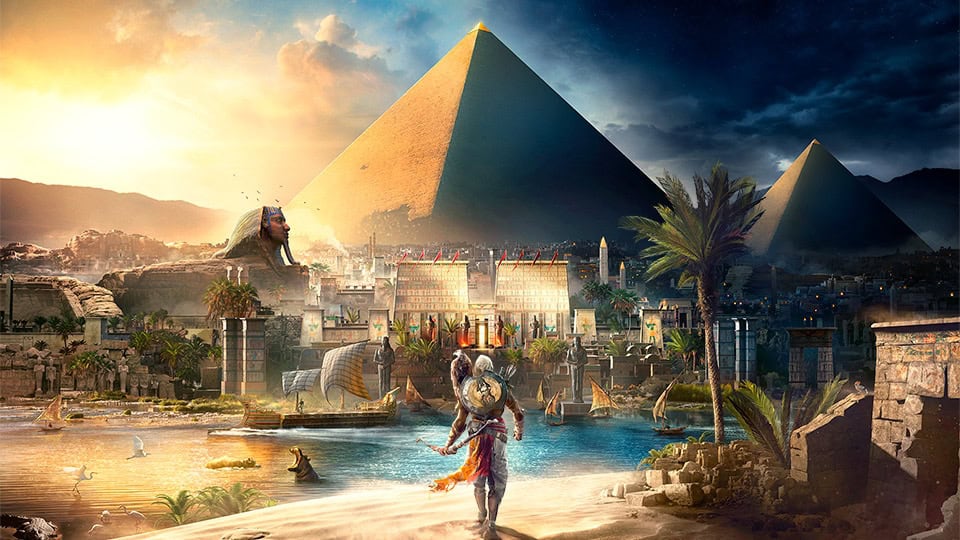
Platform: PS4, Xbox One, PC
Why It’s Great: The game that rebooted everything.
Key Features:
- Ancient Egypt’s pyramids, deserts, and oases
- RPG-style combat with gear and level systems
- Bayek’s emotional story and the founding of the Brotherhood
- Incredible Discovery Tour mode for educational value
With Origins, Ubisoft shifted toward an RPG identity while still preserving AC’s investigative and stealth mechanics.
5. Assassin’s Creed Odyssey (2018)

Platform: PS4, Xbox One, PC, Switch
Why It’s Great: It expanded the RPG systems introduced in Origins into a massive open-world epic.
Key Features:
- Set during the Peloponnesian War with Kassandra or Alexios
- Naval battles return with full customization
- Dialogue trees and multiple endings
- Mythical beasts like Medusa and Cyclops
Though some criticized its move away from stealth, Odyssey built one of the most ambitious historical playgrounds in gaming.
6. Assassin’s Creed Valhalla (2020)
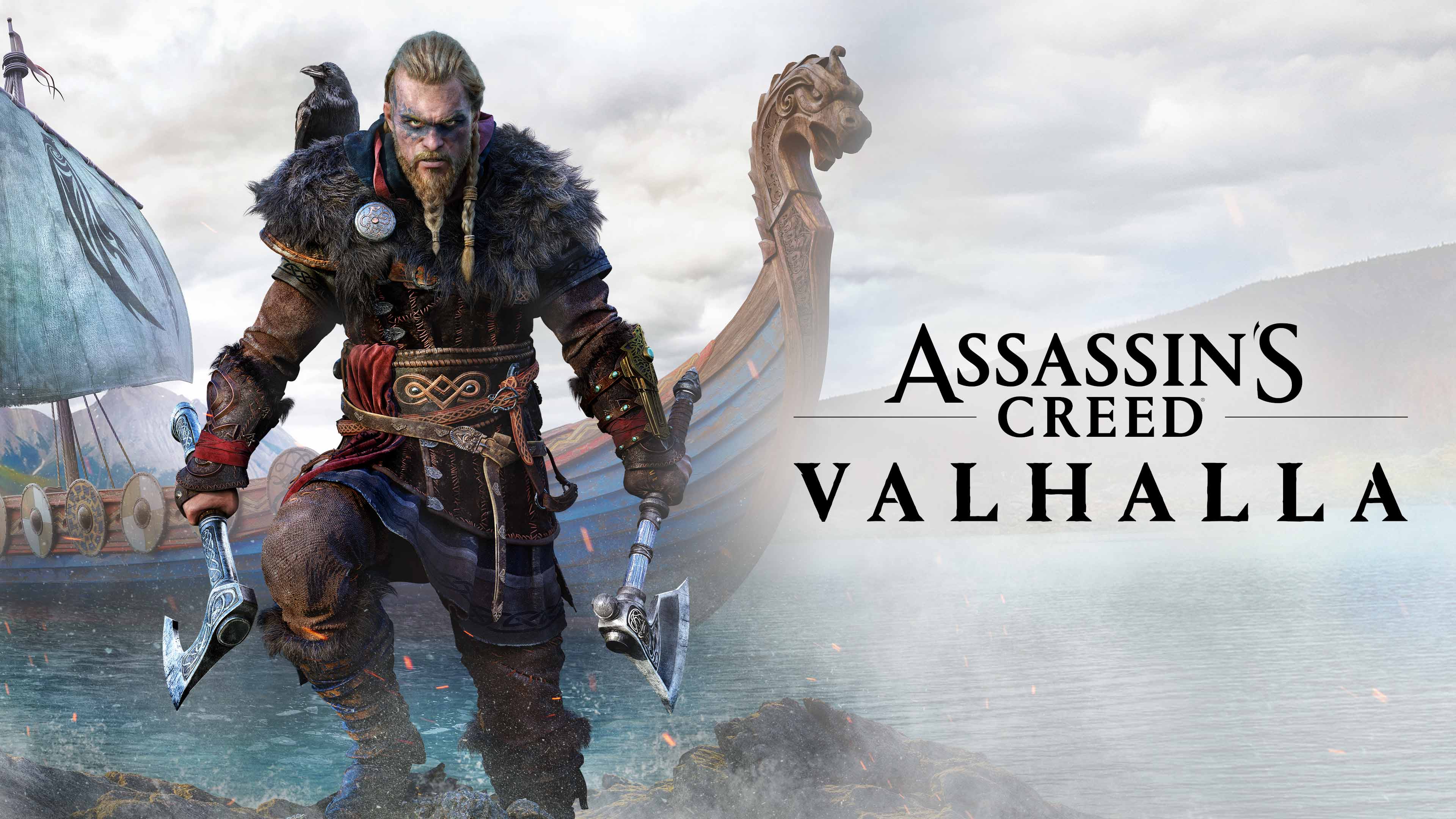
Platform: PS4, PS5, Xbox One, Series X|S, PC
Why It’s Great: Brutal Viking raids meet tender settlement storytelling.
Key Features:
- Massive open-world England and Norway
- Dual-wielding axes and siege warfare
- Story arcs based on Norse and Anglo-Saxon lore
- Long-term settlement building and relationship development
While not perfect in pacing, Valhalla’s character work and mythological subplots were highlights of the RPG era.
7. Assassin’s Creed Brotherhood (2010)
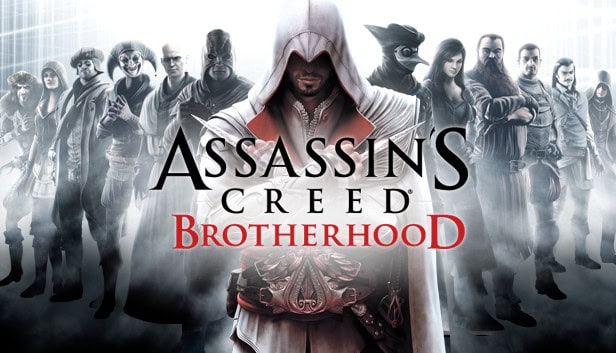
Platform: PS3, Xbox 360, PC
Why It’s Great: Ezio gets backup in this direct sequel to AC II.
Key Features:
- Recruit citizens and train them as Assassins
- Open-world Rome, complete with rebuildable districts
- Expanded combat and traversal systems
- First multiplayer mode in AC history
Brotherhood refined every system from its predecessor and added meaningful new layers, solidifying Ezio’s legacy.
8. Assassin’s Creed Mirage (2023)

Platform: PS4, PS5, Xbox One, Series X|S, PC
Why It’s Great: A love letter to the original Assassin’s Creed formula.
Key Features:
- Compact and highly detailed Baghdad map
- Emphasis on stealth, parkour, and planning assassinations
- 20-hour focused main story with fewer RPG distractions
- Classic tools like smoke bombs and throwing knives
Fans nostalgic for the stealth-first design of early AC games welcomed Mirage as a back-to-basics success.
9. Assassin’s Creed Syndicate (2015)

Platform: PS4, Xbox One, PC
Why It’s Great: Stylish, fast, and historically rich.
Key Features:
- Industrial Age London with carriages and trains
- Dual protagonists Jacob and Evie Frye
- Gang territory control
- Rope launcher for vertical traversal
Syndicate is often overlooked, but it blends combat and narrative with stylish finesse.
10. Assassin’s Creed Rogue (2014)
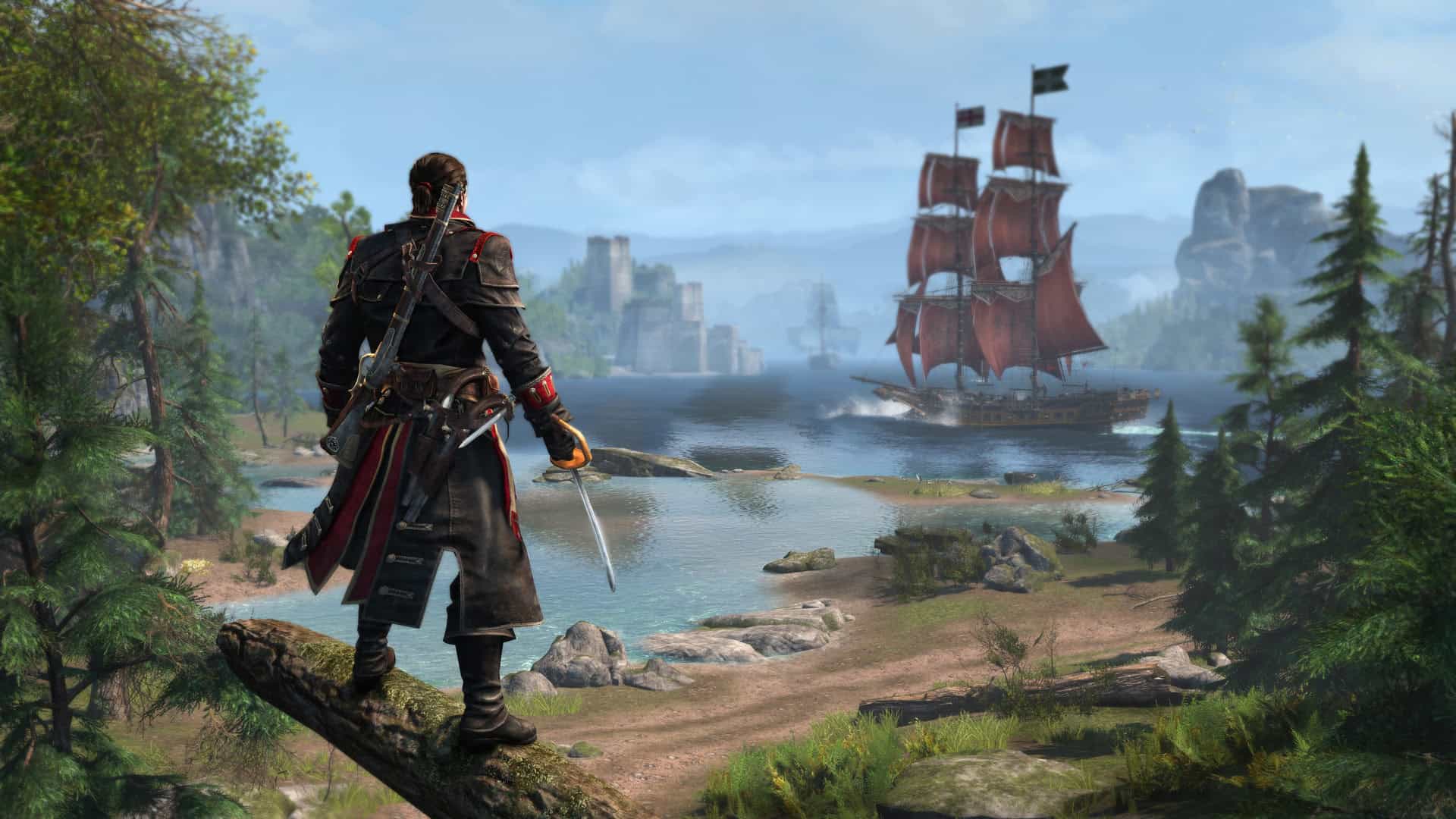
Platform: PS3, PS4, Xbox 360, Xbox One, PC
Why It’s Great: You play as a Templar during the AC III and Black Flag era.
Key Features:
- Protagonist Shay Cormac turns against the Brotherhood
- Naval exploration in icy waters
- Crossover events with AC III and Unity
- Dark narrative twist on the series formula
Rogue is a dark horse in the series that adds narrative complexity and emotional weight to the Templar side of the story.
Assassin’s Creed Game Comparison Chart
Here’s a quick-reference chart comparing all 10 ranked games:
| Game Title | Main Setting | Protagonist(s) | Notable Features | Play Style Focus |
|---|---|---|---|---|
| Assassin’s Creed Shadows | Feudal Japan | Naoe & Yasuke | Dual protagonists, dynamic weather, ray-tracing, RPG systems | Stealth & Combat RPG |
| AC IV: Black Flag | Caribbean | Edward Kenway | Naval combat, sea exploration, pirate sim | Exploration & Naval Combat |
| AC II | Renaissance Italy | Ezio Auditore | Economic systems, deep narrative | Traditional AC Stealth |
| AC Origins | Ancient Egypt | Bayek of Siwa | RPG systems, Brotherhood origin | Action RPG |
| AC Odyssey | Ancient Greece | Kassandra/Alexios | Dialog choices, mythical quests | Action RPG |
| AC Valhalla | Viking-era England | Eivor | Settlement system, Norse myths | Action RPG |
| AC Brotherhood | Rome | Ezio Auditore | Recruit Assassins, multiplayer, expanded combat | Stealth & Brotherhood Tactics |
| AC Mirage | Baghdad | Basim Ibn Ishaq | Classic stealth, compact story | Classic Stealth |
| AC Syndicate | Victorian London | Jacob & Evie Frye | Gang warfare, dual protagonists | Gang Warfare & Parkour |
| AC Rogue | North Atlantic | Shay Cormac | Templar POV, naval & Arctic missions | Narrative Twist & Naval Combat |
History of Assassin’s Creed
The Assassin’s Creed franchise has evolved significantly since its debut in 2007, transforming from a stealth-action game to a sprawling series with role-playing elements. Its journey reflects major shifts in gaming technology and player preferences over nearly two decades.
Origins and Evolution
The first Assassin’s Creed launched in 2007, introducing players to Altaïr Ibn-La’Ahad and the concept of genetic memory through the Animus device. Created by Ubisoft Montreal, the game established the core conflict between Assassins and Templars.
The series truly found its footing with Assassin’s Creed II in 2009, featuring fan-favorite protagonist Ezio Auditore. This game improved upon every aspect of its predecessor and began the beloved Ezio trilogy.
Key evolution milestones include:
- 2013: Black Flag introduced naval exploration and pirate adventures
- 2017: Origins revamped combat and shifted to RPG mechanics
- 2020: Valhalla expanded the formula with Viking themes
Each title has progressively increased in scope and scale, moving from linear missions to open-world environments that span entire countries or regions.
Impact on Gaming
Assassin’s Creed revolutionized historical gaming by blending accurate settings with fictional narratives. The series has transported players to Renaissance Italy, Ancient Egypt, and pirate-filled Caribbean waters.
Its parkour movement system influenced countless games that followed. Many modern open-world titles owe their traversal mechanics to innovations pioneered by the franchise.
The series has sold over 155 million copies worldwide, making it one of gaming’s most successful franchises. Its popularity led to books, comics, a Hollywood film, and an upcoming Netflix series.
Despite criticism for annual releases causing quality issues, the franchise remains influential in 2025 for its compelling storylines and historical settings. The balance between historical accuracy and entertainment continues to define the series’ unique position in gaming culture.
Gameplay Mechanics
Assassin’s Creed games are defined by their distinctive gameplay elements that have evolved throughout the series. The franchise blends historical settings with unique mechanics that allow players to experience different time periods through immersive gameplay.
Open World Exploration
The Assassin’s Creed series is renowned for its detailed open-world environments that recreate historical settings with impressive accuracy. Early games featured more contained areas, while newer titles offer vast landscapes to explore.
Parkour movement remains one of the most distinctive features of the series, allowing players to climb buildings and navigate urban environments with fluidity. This freedom of movement gives players multiple approaches to objectives.
The exploration mechanics shifted dramatically with Origins, Odyssey, and Valhalla, introducing larger maps with diverse terrain types. These newer games implemented naval travel, horseback riding, and even mythological realms to explore.
Side activities have become increasingly important, with treasure hunts, viewpoints for map reveals, and collection quests offering rewards that enhance the player’s abilities and equipment.
Combat and Stealth
The combat systems in Assassin’s Creed have undergone significant changes throughout the franchise. Earlier titles utilized counter-based combat where timing was crucial, while newer games adopted RPG mechanics with leveled gear and abilities.
Unity is often considered to have the best stealth mechanics in the series, offering players numerous tools and approaches for assassination missions. The game emphasized hiding in crowds, using cover, and strategic planning over direct confrontation.
The Hidden Blade remains the iconic weapon of the series, though its implementation has varied. Some games require specific timing for assassinations, while others use damage calculations based on character level and equipment.
Recent entries introduced skill trees, allowing players to customize their approach to combat.
A Look At A Classic – Assassin’s Creed 4: Black Flag
Assassin’s Creed 4: Black Flag is one of the most beloved entries in the franchise. Released in 2013, this game took players to the Caribbean during the Golden Age of Piracy in the early 18th century. The game follows Edward Kenway, a Welsh pirate who stumbles into the centuries-old conflict between Assassins and Templars. Unlike previous protagonists, Edward isn’t initially motivated by ideology but rather by the pursuit of wealth and glory.
Black Flag introduced revolutionary naval gameplay that many fans consider the best in the series. Players could sail the open seas, engage in ship-to-ship combat, and board enemy vessels in fluid gameplay sequences.
The Caribbean setting provided a vibrant open world filled with islands to explore, ships to plunder, and secrets to discover. The freedom to navigate this world contributed significantly to the game’s enduring popularity.
Combat in Black Flag refined systems from previous entries while adding new elements specific to the pirate setting. Players wielded cutlasses, pistols, and hidden blades in battles that balanced historical authenticity with engaging gameplay.
The game’s narrative has received praise for its strong character development. Edward’s journey from selfish pirate to someone who understands the Assassin’s cause resonated with many players and added depth to the series’ storytelling.
Black Flag also featured memorable supporting characters including historical figures like Blackbeard, Anne Bonny, and Charles Vane. These characters enhanced the game’s immersion and historical context.
Many consider Black Flag to be the greatest pirate game ever made, even beyond its identity as an Assassin’s Creed title. Its seamless blend of historical settings, engaging gameplay, and compelling narrative created an experience that continues to be celebrated by fans.
Frequently Asked Questions
The Assassin’s Creed franchise has generated many questions from players about game quality, storytelling, and accessibility. Fans often debate which titles stand out for their narrative, gameplay innovations, and technical performance.
What is the most highly regarded narrative experience in the Assassin’s Creed series?
Assassin’s Creed II is widely considered to have the strongest narrative in the series. The story of Ezio Auditore da Firenze spans three games and offers a complete character arc that resonates with players.
Ezio’s journey from vengeful youth to wise master assassin provides emotional depth rarely matched in the franchise. The Renaissance Italy setting also enhances the storytelling with its rich historical context.
Black Flag also receives praise for its narrative, particularly for its compelling protagonist Edward Kenway and his journey of redemption. The pirate setting creates a unique backdrop for exploring themes of freedom and purpose.
Which game should newcomers begin with to best understand Assassin’s Creed gameplay mechanics?
Assassin’s Creed Origins serves as an excellent entry point for newcomers to the series. The game redesigned core mechanics and introduced RPG elements that became standard in later titles.
Origins features a more accessible combat system and provides a clear narrative about the brotherhood’s formation. The tutorial sections are comprehensive without being overwhelming.
For those seeking the classic Assassin’s Creed experience, Assassin’s Creed II remains recommended by many fans. It established many of the franchise’s signature elements while remaining approachable for new players.
How do Assassin’s Creed games rank from best-reviewed to least favorably reviewed?
According to Metacritic scores, Assassin’s Creed II and Brotherhood typically rank highest with scores in the high 80s to low 90s. These titles received praise for story, gameplay innovations, and world design.
Assassin’s Creed IV: Black Flag follows closely behind, earning strong reviews for its naval gameplay and open-world design. Critics particularly appreciated its pirate fantasy elements and exploration.
On the lower end, Assassin’s Creed Unity initially suffered from technical issues that affected its reception. Assassin’s Creed III and Syndicate received mixed reviews despite having dedicated fans.
Which Assassin’s Creed title is considered the most challenging?
The original Assassin’s Creed presents the most challenge due to its less refined combat mechanics and lack of modern quality-of-life features. The game’s more punishing counter-timing and stealth requirements create a steeper learning curve.
Assassin’s Creed Unity also offers significant difficulty with its revamped combat system that discouraged taking on multiple enemies at once. The game’s stealth missions often required precise execution.
For modern entries, Odyssey’s Nightmare difficulty combined with level scaling creates a consistently challenging experience throughout the game. Enemy damage output increases dramatically while player healing is limited.
What is the optimal Assassin’s Creed game for PlayStation 5 in terms of graphics and performance?
Assassin’s Creed Valhalla demonstrates the most impressive technical performance on PlayStation 5. The game runs at a stable 60fps at 4K resolution with enhanced visual effects and significantly reduced loading times.
Valhalla received a dedicated PS5 optimization patch that takes full advantage of the console’s capabilities. The game features improved lighting, shadow quality, and environmental detail compared to previous-gen versions.
The upcoming PS5 version of Assassin’s Creed Mirage will likely set a new benchmark for the series when it releases, with promised enhancements for the new hardware.
What is the most recommended Assassin’s Creed game according to the gaming community on various platforms?
Assassin’s Creed IV: Black Flag consistently appears as the most recommended title across gaming community discussions. Its blend of traditional assassin gameplay with naval exploration creates a unique experience.
Black Flag’s pirate fantasy elements appeal to both series veterans and newcomers. The open Caribbean setting, ship customization, and sea shanties contribute to its enduring popularity.
Odyssey and Origins also receive frequent recommendations for players who prefer RPG mechanics and larger open worlds. These titles represent the modern evolution of the franchise with expanded gameplay systems.

